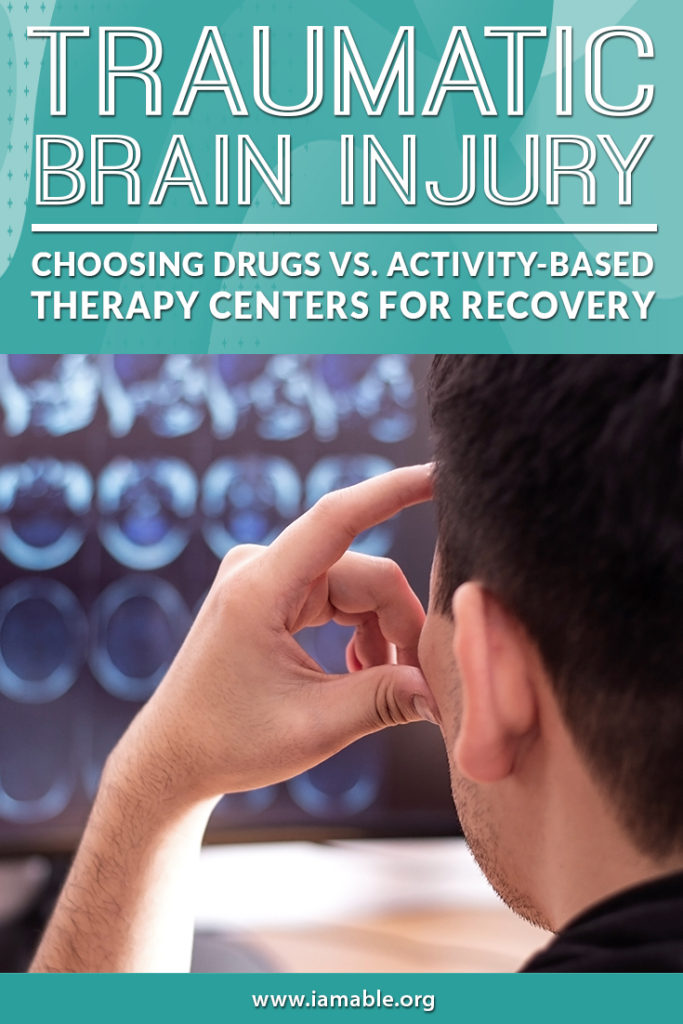Miami, FL 33186

When a traumatic brain injury occurs, the length of time recovery takes will depend on the extent of the injury and damage. Another factor will include the recovery methods you choose to employ. Today, we will compare two ways to recover from a traumatic brain injury. First, we will discuss the types of medications that a doctor may prescribe in the aftermath of such an traumatic brain injury. Then we will take a look at what activity-based therapy centers can do for patients.
Here are six categories of drugs that commonly get prescribed to help a person who is recovering from a TBI. While this is not a definitive list of medication for TBI recovery, it provides a general idea of the goal of drug-based therapies.
As you can see, the purpose of medication is to combat symptoms that result from the TBI or to prevent further damage. While these are important goals, you also want to try and undo as much of the damage as possible. This is especially the case if the brain injury has led to some degree of paralysis or paresis, and you want to try to maximize the amount of independence you will regain. That is why you want to add another form of care by going to an activity-based therapy center.
There are many types of therapy that can be beneficial after a TBI, depending on the extent of the damage. For example, you may need the assistance of physical therapy, occupational therapy, speech therapy, and so on. At an activity-based therapy center, you can receive the support you need in order to maximize the restoration of your physical abilities. You can also get the exercise that you need to maintain healthy heart and lung function.
Activity-based therapy involves moderate to intense activity, several times per week. What are the goals of this type of therapy?
These are just some of the benefits that researchers link to activity-based therapy. While most of this research focuses on spinal cord injuries, the same principles apply when a traumatic brain injury limits movement.
TBI recovery can be a long journey. What can help you to stay motivated and up for the challenge?
The first hurdle you must overcome after a traumatic brain injury is accepting the new challenges that you will face in your day to day life. The sooner you accept your new normal and start taking control, the better your odds of maintaining maximum independence.
One crucial aspect of your journey will be vetting nearby activity-based therapy centers to find the right match for you. In southern Florida, iAM ABLE wants to be your partner in helping you to reach your goals by means of both traditional and technological therapies. However, whether you live nearby or out of the area, one thing we provide for everyone combating a traumatic brain injury or other significant life change is our book: 7 Crucial Steeps Needed to Thrive after Paralysis.
Whether your paralysis is temporary or permanent, this book will help you prepare for the challenges ahead. You need the right internal motivation to meet the challenges of a long journey of recovery. This book can help you to find that motivation within yourself. Let iAM ABLE help you to take control of your circumstances rather than allowing them to control you.
Grab our free e-book 7 Unbelievably Important Steps to Take to THRIVE after Paralysis by clicking the image below.
